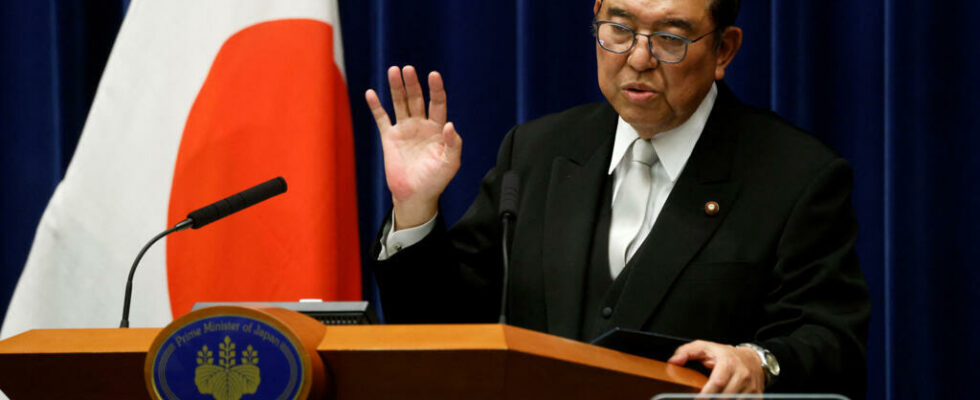The Japanese government approved on Friday, November 22, a recovery plan equivalent to 136 billion euros to boost the purchasing power of consumers in the face of inflation and stimulate sluggish growth, less than a month after a bitter electoral failure of the ruling coalition.
2 mins
This plan of 21,900 billion yen (136 billion euros), approved by the government of Japanwill still have to go through Parliament, where the government of Prime Minister Shigeru Ishiba no longer has a majority.
The program includes packages of around 30,000 yen (186 euros) for low-income households, subsidies for fuel and energy, tax adjustments, as well as assistance for small businesses, according to the government. “ The objective is to ensure that salary progression is regularly higher than inflation, and to ensure a transition towards an economy oriented towards growth, driven by salary increases and investment. », According to a press release.
A global impact of 39,000 billion yen
The overall impact could reach 39 trillion yen, if private sector loans and investments are added. Everything will be financed with a lot of additional public spending – some 13.9 trillion yen, according to the government – which will require a revised budget to be passed by the end of December.
For the Prime Minister Shigeru Ishibaboosting consumption was a priority. After promising in the wake of his appointment at the beginning of October to support low-income households and revitalize rural regions, he suffered a heavy failure in the early legislative elections at the end of October.
His party, the Liberal Democratic Party (PLD, conservative) and its small ally Komeito have failed to retain absolute majority in the lower house of Parliament.
Discontent with the rise in consumer prices, which has persisted in the archipelago for more than two years after decades of almost non-existent inflation, weighed heavily in the vote. Inflation, which is weighing down household spending, reached 2.3% again in October, with a historic surge of 59% in rice prices over one year. And the growth of the gross domestic product of the fourth largest economy in the world continues to run out of steam (only 0.2% year-on-year in the third quarter).
Also readJapan and the European Union announce a new pact on security and defense
